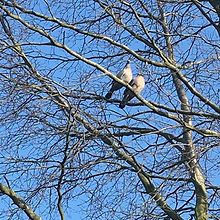PEOPLE
Our group brings together individuals with experience, on a personal, professional, academic or activist level, with the long-term, and often intergenerational impacts of synthetic pesticide exposure. We work closely with fellow campaigners as well as a network of allied groups with whom we meet regularly and who share intersecting interests in improving the environment in which we live.
Please contact us if you'd like to work with us either as an individual or organisation.

PROJECT LEADS
Pesticide-Free Cambridge is co-led by Julia Shaw, and Ben Greig. See here for their recent interview with Pesticide-Action Network UK.
JULIA SHAW

Julia Shaw is an environmental campaigner, and university researcher. She is a founding member of Pesticide-Free Cambridge (PFC) which she set up in 2018, following many years of informal campaigning work on Local Authority and private use of herbicides and insecticides. In early 2020, she joined forces with Ben Greig who brings to the campaign his vital experience from On the Verge Cambridge. She sits on Cambridge City Council's Herbicide-Reduction Working Group and continues to drive various local and national pesticide-free campaigns, building on the success of PFC's initial campaign to get Cambridge City Council to ditch herbicides on the land that it owns or manages. She brings to PFC her previous volunteering experience with a national charity that supports people injured by pesticide exposure, and firmly believes that healing the natural environment and human health need to go hand in hand. An overarching aim is to see urban pesticide use properly framed within both biodiversity/sustainability, and disability access policy. She is involved with all areas of the campaign, is the main liaison with related participant activist research activities, and manages the main website and social media content.
As a university researcher, she teaches and writes about contested landscapes, nature reception, environmental ethics, land and water governance, and the deep-history of human perceptions of, and engagements with the natural environment, including gardens, and attitudes to the 'wild', 'weeds' and 'pests'. She leads participant activist research project, Pesticides and Urban Nature, measuring the socio-ecological, behavioural and policy-change impacts of community-driven nature-regeneration activism, including Cambridge City Council's own shift towards herbicide-free landscape-management practices. Direct outputs include a chapter (‘Urban Pesticides, Placemaking, and “Everyday” Chemical Exposure’) in Chemical Exposures: Toxicity in the Anthropocene, ed. L. Sabin et al., London: UCL Press (In Press, 2025), and a book on Urban Nature, Contested Landscapes, and Environmental Activism (Forthcoming).
She is also working on a book on Buddhism and Ecology, while other publications include books on Buddhist Landscapes in Central India (Routledge 2016); and Archaeology of Medicine and Healthcare (co-edited with N. Sykes, Routledge, 2022).
BEN GREIG

Ben has always been passionate about nature but a few years ago decided to become more pro- active and actually do something to arrest the catastrophic decline in wildlife all around us. In summer 2019, he helped set up On the Verge Cambridge, a small voluntary group doing pollinator-friendly planting around the city. Initially they worked mainly with the city council to help establish the city park wildflower meadows. In 2021 they began their Meadows for Schools program and now have wildflower areas in seven Cambridge schools, to which they have added bee and beetle habitats. For several years now, every autumn and winter, they run work parties on local chalk grassland verges to help restore this globally rare habitat.
Working in the local green spaces opened his eyes to horrific herbicide spraying on the city’s verges. He emailed PAN-UK about their Pesticide-Free Towns campaign in early 2020 and they put him in touch with Julia: they've been working together since.
As a Friends of Logan's Meadow committee member, Ben also helps to organise wildlife-based events year-round to celebrate and record the flora and fauna in this gem of a nature reserve in central Cambridge. An enthusiastic supporter of the Save Coton Orchard campaign, he helps to plan and run the annual Bioblitz in this pesticide-free, traditionally managed and incredibly biodiverse orchard in a nearby village. In the summer months he runs moth traps in schools, moths being a passion of his. They are also a perfect vehicle for enthusing children about wildlife, discussing the dire state of nature but also talking about what we can do to change that.
VOLUNTEERS







